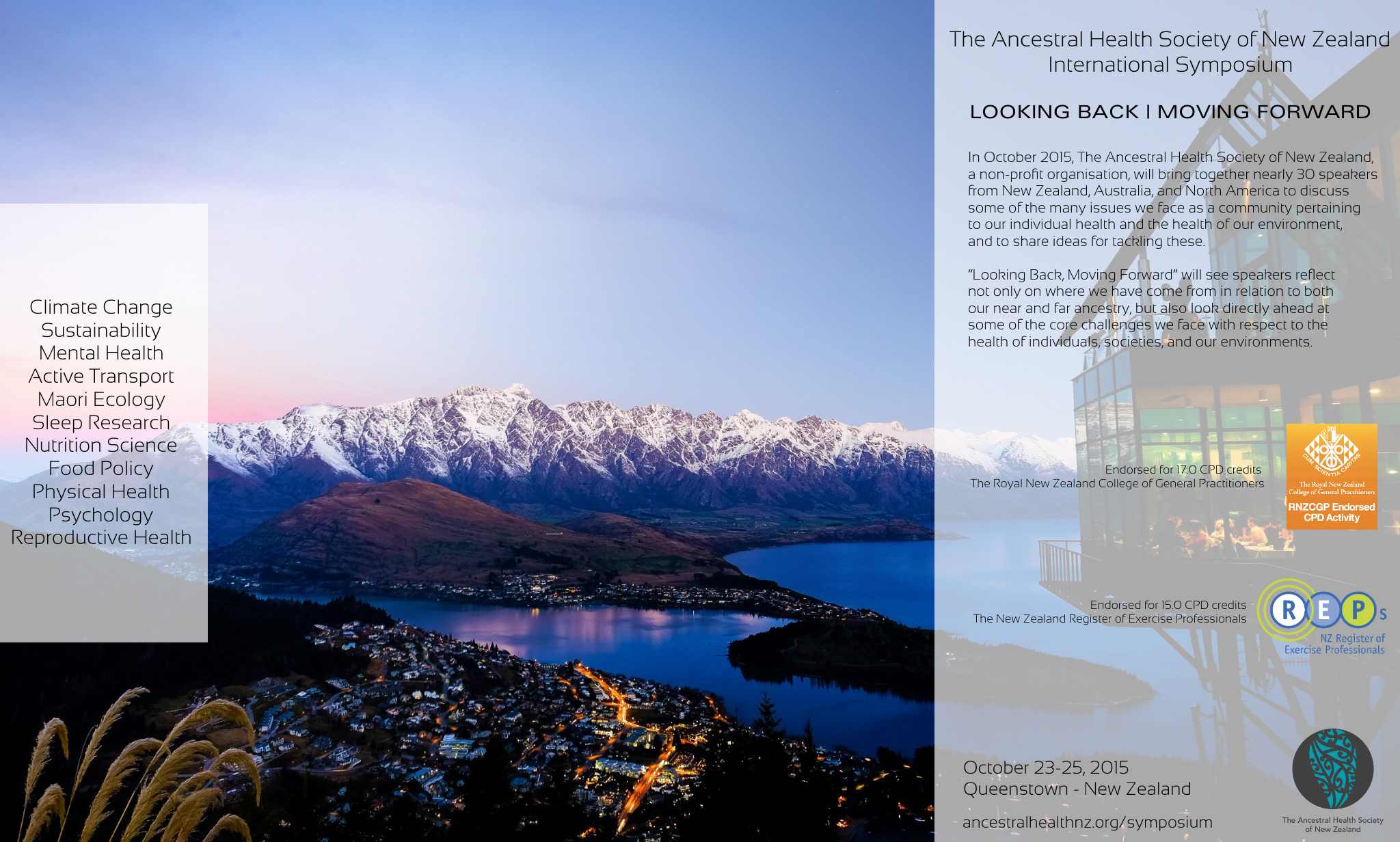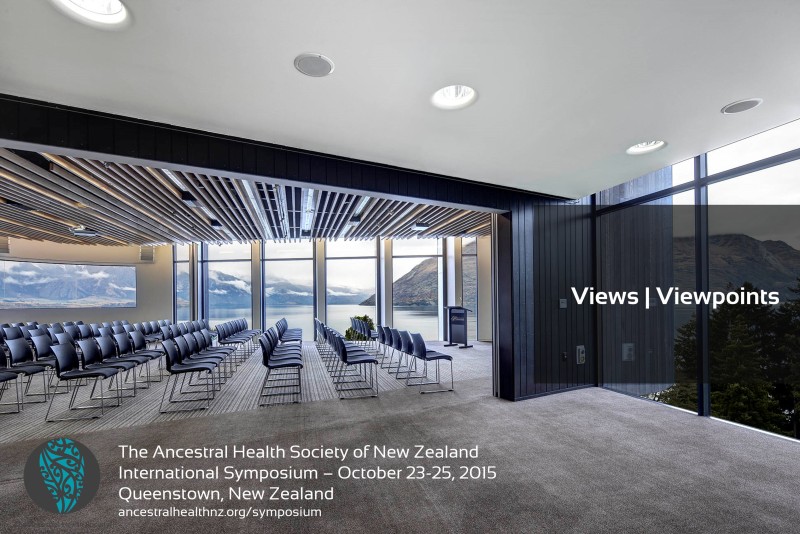Guest post written by: Jamie Scott
“Declare the past, diagnose the present, foretell the future.”
– Hippocrates
A quick tour of the flourishing foodie blogger scene and you could be forgiven for thinking that the movement for improving food, diets, and health, is a very shallow one. A few foodies will touch on food systems, and fewer still, food policy. The vast majority, however, seemed to be focused on ingredient substitutions in the latest dessert recipe. Sitting alongside the foodies, the physical culturists, do their bit to focus on better ways to get us moving. All play their part, of course, giving individuals an entry point into a bigger picture.
But there is a deeper aspect to all of this, and one which Robb has been keen to champion (alongside the likes of Diana Rodgers) with the Sustainability > Abs refrain. If we simply remain focused on a few handfuls of ingredients, or find yet another layer of exercise for the highly motivated to add into their already overstocked routine, then nothing much changes in a system built around “eat less, do more, everything in moderation” – a system that is fundamentally flawed, if not broken.
Recognition that we need to fix a very broken “health” (sickness) system is not limited to alternative thinkers and contrarians embedded in the likes of the Paleo movement. There is not the “us” vs. “them” war going on that many who advocate being part of their “tribe” like to play on. There are, of course, many perspectives, and very many barrows being pushed by large vested interests in the health scene.
But we also see a massive amount of convergence occurring around core values (with minor skirmishes around the fringes remaining – being played up by those, on all sides, who want to either keep the status quo or to White Knight it in and save the masses from the evil Empire). A good example of this convergence – the relatively rapid dissolution of arguments against limiting dietary fat leading to the recent recommendations being made to the US Dietary Guidelines Advisory Committee.
The Ancestral Health Society of New Zealand (AHSNZ) has been set up around a core group of passionate New Zealand-based health professionals and laypersons who want to tackle some of the deeper issues we face around our health and pull people – from all backgrounds and perspectives – together on common values and objectives. Whilst the starting perspective of the Society – our initial point of enquiry – is one of evolutionary biology and our human ecological niche, this is not where our perspective ends. We recognise that in addressing the mismatch which currently exists between our biology and our modern societies, we may need to equally find novel solutions to these problems as well as approximating the best bits of our evolutionary past.
To this end, the AHSNZ is running its first International Symposium in October this year. Being held on the shores of the breathtakingly beautiful Lake Wakatipu, Queenstown, New Zealand, the theme of our symposium, “Looking Back, Moving Forward”, taps into this perspective of understanding and drawing on the “best bits” of our ancestral past (both distal and proximate ancestry), alongside understanding our evolutionary-unique ecological niche we have carved out for ourselves and the constraints and barriers to change this imposes. We also look to the future and ask what our ancestral legacy will be – what is our contribution to our future selves.
By way of example, some of the biggest challenges we face, as a species, relate to climate change and sustainability. We are a species growing in number, with each person (in the Western world at least) aspiring to own ever more stuff, but living on a drifting rock with finite resources. Our rapid consumption of this planet’s resources are heating it up faster than it perhaps otherwise would, and we need to find ways to produce food, in particular, in a sustainable fashion to feed more mouths. Can this be done with “real food” or will we be faced with a Soylent Green-esque dystopia? Do we have to reduce our quality of life to support the quantity of life we seem to inevitably face?
Readers have no doubt heard opponents of Paleo-type diets suggest we can’t feed the world on Paleo. Or that, in light of climate change, we need to be producing and consuming less meat. Is this true? How much should we be eating? Can we do this sustainably? What are the impacts on our health from climate change if we can’t find ways to minimise warming?
These are all worthy questions and ones which need to be debated and discussed. No doubt plenty of readers won’t care much for such discourse as long as all the beef they consume leads to six-pack abs. But then others, especially those with young children, who perhaps don’t want them growing up in such an uncertain world, might just be interested in this sustainability gig.
What about where we live and how we transport ourselves around? What will be the impact on us as individuals if we insist on owning a home, necessitating living in the ‘burbs a couple of hours from our work and needing to commute each day, typically by private motor vehicle? Is there an alternative? Do mixed-use cities, where people can more readily engage in active transport, actually work?
What should our priorities be for physical movement and what are are options for achieving these? What lessons can be learnt from an indigenous culture perspective regarding engagement in more movement? The strength coaches tell us we need to get stronger. But what do the physical health clinicians suggest? Cardio or weights? And even when we have all the answers, why is it so hard to shift behaviours toward these priorities?
Are medical doctors measuring the right markers of health? Should we be mass screening the population in their third age, or has the societal health horse largely already bolted by then? To stop this obesity crisis deepening into an ever more multigenerational quagmire, where do we apply the circuit breaker, and how? Why is it so critically important that we ensure our children, and in particular, our girls, get a good grounding in sciences, especially the biological sciences?
All of these questions are of critical importance. All these issues need close examination. And Paleo/Primal/Ancestral Health focuses, whilst bringing one perspective to the table, do not hold all of the answers. Certainly, an evolutionary biology lens is a good one through which to view the world, but it perhaps doesn’t allow us to see everything. We need a wider discourse. We need to challenge and to be challenged.
Our October International Symposium offers the perfect opportunity to bring many unique and varied perspectives together, to share knowledge, and to discuss and debate issues at a level a bit deeper than paleofication your favourite fast foods. The Ancestral Health Society of New Zealand would like to extend a warm welcome to anyone and everyone, from around the world, who wish to be a part of this event, part of our discussion, and a part of our growing and converging community.
And as a special thanks to Robb and his community, we are offering up a double pass to our event. Simply head to our symposium programme page (here), decide which 3 talks you would most like to hear, and leave a comment here or on the Robb Wolf Facebook page. If you do this, you go into the draw for that pass for you and a travel buddy.*
AHSNZ International Symposium Details
When – October 23-25, 2015
Where – Queenstown, New Zealand
website: www.ancestralhealthnz.org/symposium
speakers: www.ancestralhealthnz.org/symposium/speakers/
programme: www.ancestralhealthnz/symposium-programme
*Competition T’s & C’s:
- The competition is for one double pass to the full 3-day symposium.
- It does not include travel or accommodation costs, or any other associated expenses – these are to be met in full by the competition winners.
- Please only enter if you are able to travel to this event.
- Tickets cannot be transferred to anyone else and cannot be redeemed for their cash value.
- Tickets hold no value beyond giving the prize winner access to the event.
- All correct entries will be accepted into the draw (you must state the 3 talks you want to see and you must leave a comment on either this post or Facebook page).
- Prize winners will be drawn randomly from the pool of correct entries.
- Competition closes 11.59pm, 26th July, 2015. Winners announced 27th July on the RW Facebook page.



WOW, thanks for offering up this opportunity; would be super awesome. The program looks amazing; the three I’d most look forward to attending would be: 1) Healthspiration and the psycho-sociality of everyday life: a discussion on the determinants and detriments of ‘health-at-all-costs’
Andrew Dickson, BSc, BBS, MBS, PhD; 2) DOHaD: Developmental Origins of Health and Disease
Jamie Scott, BPhEd (Exercise Science) Bsc (Human Nutrition) PGDipSportExMed; and 3) Friends and lovers: how other people modulate your stress response
Dallas Hartwig, MS, PT
I’d like to listen to:
1) Movement for the rest of us: developing resilient bodies in a ‘cardio’world’
2) Strength training for normal humans
3) The Relationship Between Activity, Good Health, and the Power of Play
The 3 talks I’d most like to hear at AHSNZ are: Sustainability & Food Pyramid with Diana Rogers; Brain Gut Axis with Emily Deans and Sleep:The Underdog with Kirk Parsley.
It’s all about willing to find a better way for yourself, great tips if there’s too many excuses 😉
I like to see Prof Simon Kingham because living rurally, its a challenge to not drive the car but I’m sure I’m making up excuses!
Also Dr Michelle Dickinson because I saw her at TEDx Wanaka and she rocks being a chick! Hello sexism???!
Dr Andrew Dickinson because the word healthy makes me sick how its being hijacked by the marketers.
Should be a fantastic event.
Thanks for running this competition! I would definitely attend the sessions on play, sleep and and sustainability and the food pyramid. Cheers!
I would love to listen to the talk on “Signaling theory and what your environment is trying t o tell you”, and “Strength training for the rest of us”, and my third choice would have to be the talk on “Modern obstacles to hormonal vitality ;navigating our way back”. There are numerous talks here that appear to be very interesting! I would love to have a chance at being a part of this!
I’m most looking forward to the talks by Dallas Hartwig, Dr. Kurt Parsley, and Dr Anastasia Boulais!
I am looking forward to *The Relationship Between Activity, Good Health, and the Power of Play by Darryl Edwards, *Sustainability and the Food Pyramid by Diana Rogers, and *Travelling in the slow lane: the benefits of, and barrier to, active transport by Professor Simon Kingham.
Ultimately I’m really looking forward to being surrounded by like-minded individuals in a beautiful location in the middle of spring. Doesn’t get any better 😉
Hey Folks. AHSNZ President here. First, a big thanks to Robb and Squatchy for the opportunity to run a piece here. Second, thanks to everyone who read our thoughts – hopefully we sparked some interest in what we are doing down in our corner of the world. And lastly, thanks to the 7 people above who threw their hat in the ring for the free tickets.
To draw this, we assigned you all numbers from 1 to 7, based on the order on the page, then used a random number generator, a goat sacrifice, and some jiggery pokery to land at lucky number 4! So a big congratulations to Anja! You have won two tickets to our event!
Drop us a line – info [at] ancestralhealthnz [dot] org and we’ll hook you up.